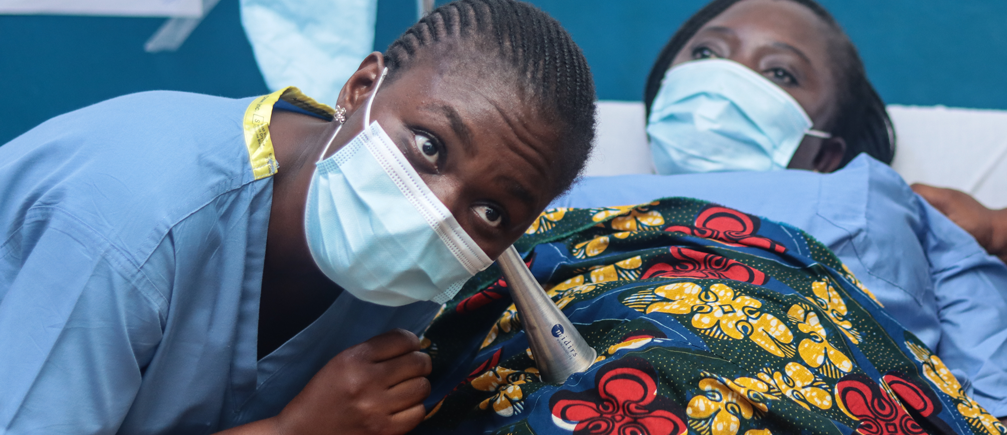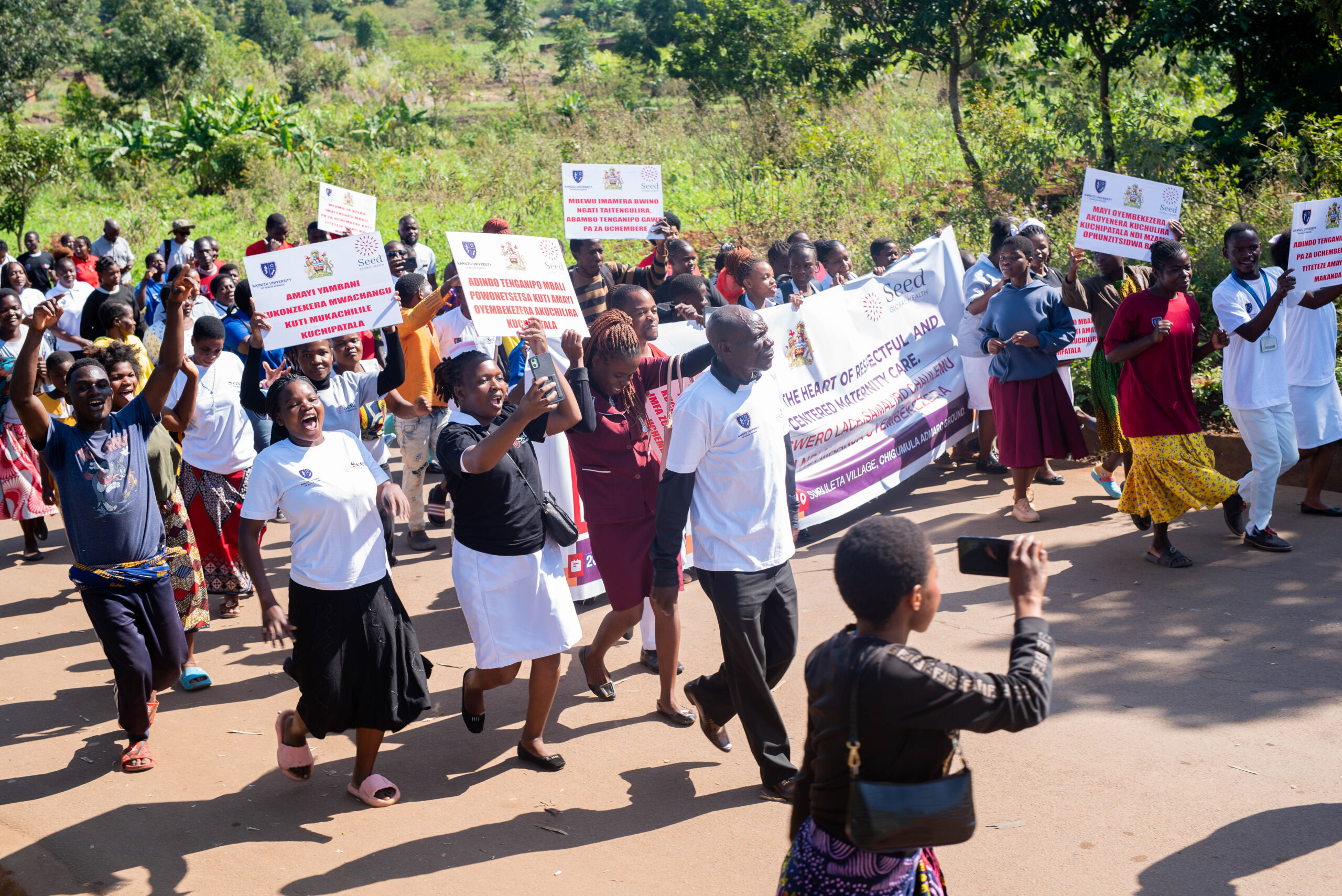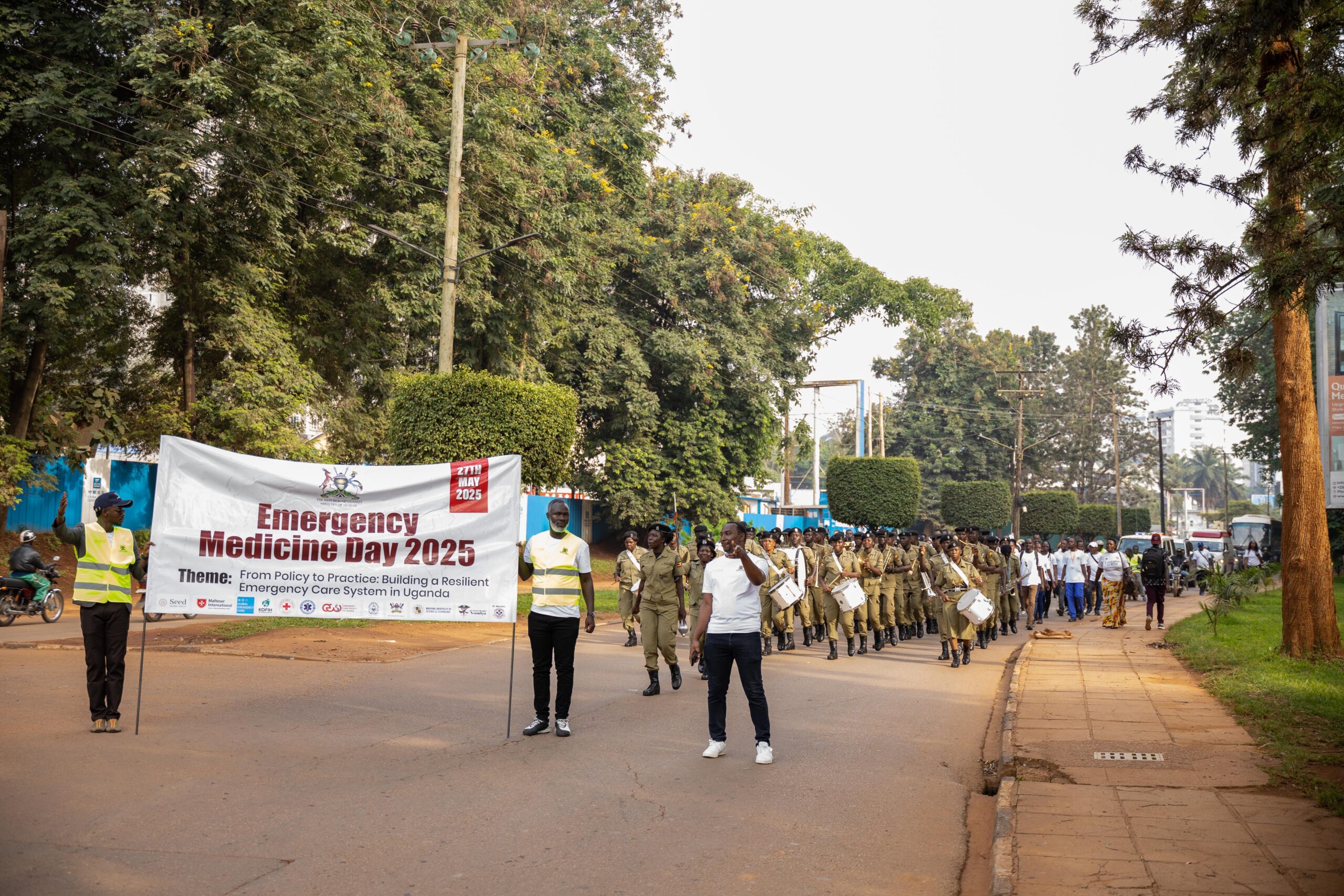
UHC: A Generational Impact Within Reach
By Dr. Vanessa Kerry
Five years ago, the United Nations launched its global strategy on human resources for health—making clear the international community’s priority to invest in universal health coverage (UHC) with a people-first approach.
Two years ago, the world gathered to unanimously commit to UHC —and a goal to achieve it by 2030.
Today, we could not be farther from that moment.
Globally, the COVID-19 pandemic has widened the chasm of inequity in access to care, first by who got sick and died, and now by who can get vaccinated. The need for UHC has never been more urgent nor more evident, yet our global health system still operates more or less as it always has.
For the last 50 years, health has been underinvested in across the world and we are now seeing the tragic results of this chronic deprioritization; already-critical shortfalls in human resources for health have spiked with the death of up to 180,000 trained health workers from COVID-19.
These shortages mean that not only do victims of the pandemic go uncared for and vaccines go unadministered—but also that cancer patients, pregnant people, and injured workers go untreated, and 23 million children (and counting) miss out on routine vaccinations.
If the pandemic has taught us anything, it is that we must get serious about our response to health challenges—both entrenched and newly emerged. We cannot risk small measures or deferred responses; we must tackle these head-on and have the prudence to make incremental progress and courage to demand transformational change.
We have a singular opportunity to leverage COVID-19’s incontrovertible proof of exactly how critical health is to our daily lives and how poor health worsens preexisting inequity in every corner of the world. But first, we must accept that health matters universally. Existing UHC would unquestionably have lessened the effects and inequities of COVID-19. But we can still course correct now. In the pandemic’s long wake, we can begin building systems that address this disease—and many others with devastating effects on communities and countries.
That begins by investing in people at every level. People are the heart and lifeblood of every health care system, as both patients and providers, and it is ultimately people—trained health workers in every corner of the world—who will realize this goal of UHC.
The pathway to vaccine rollout is a poignant example. For every dollar spent on COVID-19 vaccines themselves, countries must pay $5 to deliver the shots, half of which must go to training, equipping, and paying health care providers. Had these workers been trained before the pandemic, those costs might have been lessened—but as-is, those invested dollars can now return benefits back to their countries as many as five times over.
As we respond to COVID-19, we must remember our commitments from two and five years ago—and empower people across the spectrum of care. A worker who learns to administer COVID-19 shots can just as easily vaccinate children against polio or HPV, and they can go on to deliver babies, set broken bones, or treat HIV.
Our solutions today become enduring for tomorrow.
“Solving for COVID-19” only scratches the surface of a resilient solution. Investing seriously in health workers will not only carry us through the pandemic; it will allow us to begin saving other lives, from premature babies to malaria patients, and even victims of climate change.
At a Seed Global Health event earlier this year, Dr. Ahmed Ogwell Ouma, the deputy director of Africa Centres for Disease Control and Prevention, asked and answered: “When’s the best time to plant a tree? 30 years ago. When’s the second-best time? Now.”
No health system can function, let alone stop the destruction from a pandemic, without a well-trained, well-resourced, and well-distributed workforce. A complete, lasting, high-quality workforce strengthens clinical care delivery, nurtures a cycle of training for future providers, and helps build the infrastructure and environment for retention.
Quality health care systems are fundamental not just to our ability to survive but also to thrive. On top of the obvious health and quality of life impacts, strong health systems catalyze entire countries to build GDP and personal income alike, stabilize housing and educational opportunities, spur job growth and productivity, and even contribute to gender and class equity. When you consider our most urgent and existential global challenges—poverty, climate, political discourse, migration—their solutions are all hampered by the pandemic, which in turn reflects our failure to solve the preexisting challenges in global health. We have always underplayed and undervalued health care but if we can get it right today, the world suddenly has possibility again.
UHC, simply put, is the rising tide that lifts all boats.
At our current pace, a third of the globe will still lack access to needed health services by 2030. Right now, we have the starkest possible case already made for investing more in health and its providers—not only to navigate this pandemic or prevent the next one, but also to create a ripple effect for the wellbeing and stability of our communities.
There is a once-in-a-generation opportunity here to live out our deepest values—we just have to choose it.

